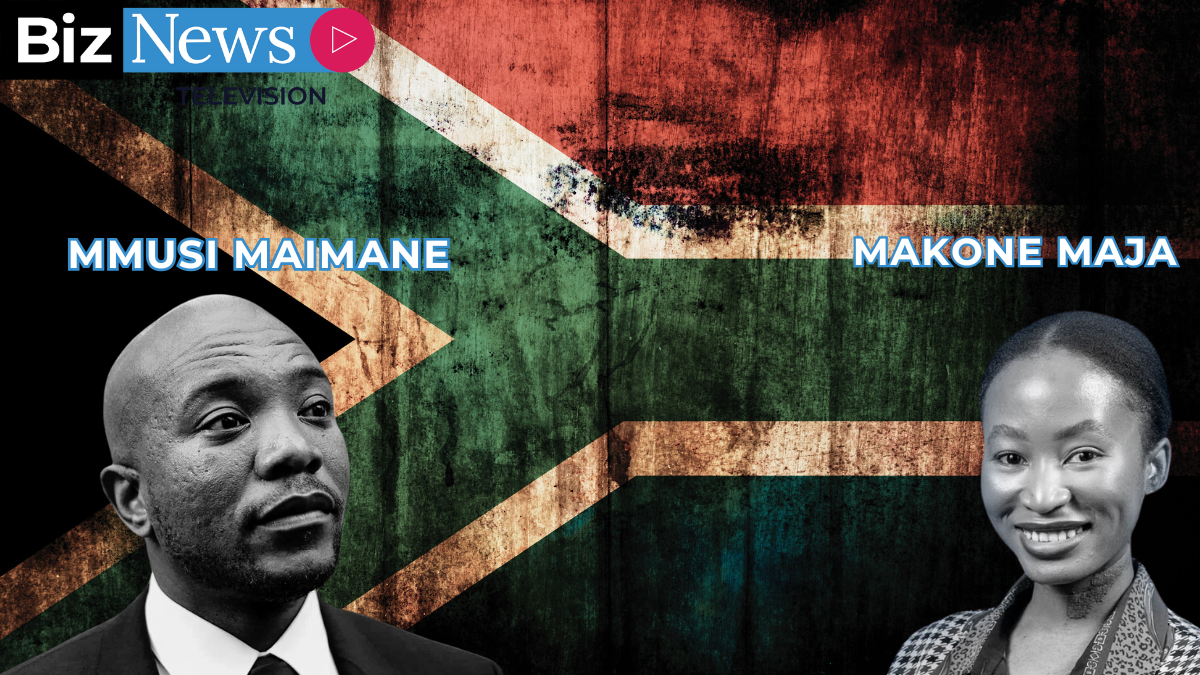Politics tamfitronics
In a candid discussion on the BizNews Briefing podcast, Makone Maja of the Institute for Race Relations and Mmusi Maimane, leader of Build One South Africa, addressed South Africa’s political crisis. They discussed the fallout from ANC’s governance challenges, the Democratic Alliance’s controversial coalition, and the deteriorating state of Johannesburg and Tshwane.
Sign up for your early morning brew of the BizNews Insider to keep you up to speed with the content that matters. The newsletter will land in your inbox at 5:30am weekdays. Registerhere.
The seventh BizNews Conference,BNC#7is to be held in Hermanus from March 11 to 13, 2025. The 2025 BizNews Conference is designed to provide an excellent opportunity for members of the BizNews community to interact directly with the keynote speakers, old (and new) friends from previous BNC events – and to interact with members of the BizNews team. Register for BNC#7here.
Watch here
Listen here
BizNews Reporter
___STEADY_PAYWALL___
In an illuminating interview, Alec Hogg engaged Makone Maja, a campaign manager at the Institute for Race Relations, and Mmusi Maimane, leader of Build One South Africa (BOSA), on pressing issues in South African politics. Both Maja and Maimane expressed deep concerns over the state of governance, the risks of political alliances, and the fallout of ANC’s decades-long tenure. Their conversation covered everything from faltering prosecutions for state capture to water shortages threatening major municipalities like Johannesburg.
Maja opened by detailing challenges faced by the National Prosecuting Authority (NPA), which has struggled to prosecute cases from the Zondo Commission’s state capture investigations. She warned that if prosecutorial follow-through fails, South Africans would lose faith in the justice system, compounding frustrations with a government accused of mismanagement and corruption. Despite claims that South Africa has addressed a majority of the Financial Action Task Force’s requirements to exit its grey list, unresolved cases of financial misconduct may continue to impact the country’s reputation and economic prospects.
Hogg then shifted to the topic of the government of national unity (GNU), formed between the Democratic Alliance (DA) and the ANC, asking whether this alliance benefits South Africans. Maja responded with skepticism, arguing that the DA risks compromising its values by partnering with the ANC, a party it historically opposed for its alleged role in state corruption. According to Maja, the DA would have more effectively championed accountability and governance had it chosen to align with the Rainbow Coalition instead. The GNU, she cautioned, could lead to diluted policies that work against the DA’s core values.
Read more: Political killings, political interference, political policing…
Addressing South Africa’s crumbling municipalities, particularly Johannesburg and Tshwane (Pretoria), Hogg compared the two and referenced recent criticisms from former Johannesburg mayor Herman Mashaba, who claimed Johannesburg was faring better. Maja disagreed, citing IRR research suggesting both cities face severe infrastructure problems, especially around water supply. She pointed to Johannesburg’s aging water network, which suffers from frequent leaks, and warned that insufficient infrastructure maintenance could spell long-term disaster for the city. Maja emphasized the need for civic involvement and possible legal actions to push municipalities to address these infrastructure issues urgently.
When Hogg referenced RW Johnson’s article, “Jo’burg, the Dying City”Maja agreed, reiterating that Johannesburg’s water shortage crisis results from years of poor planning and a lack of infrastructure investment. She mentioned the failure of the Lesotho Highlands Water Project as emblematic of the city’s larger governance issues and expressed concern that inadequate government action might soon make Johannesburg’s water supply unsustainable.
The conversation then moved to recent political shifts in Botswana, where the ruling party lost power after nearly six decades. Maimane viewed this as an indication of Southern Africans’ growing impatience with liberation movements that prioritize political legacy over governance. He argued that after years in power, parties like the ANC have lost touch with their liberation values, choosing to govern based on past victories rather than on present needs. Maimane observed that voters across the Southern African Development Community (SADC) are rejecting such movements in favor of leaders committed to accountability and service delivery.
Read more: BizNews Briefing – David Shapiro; Sean Summers; Makone Maja; Mmusi Maimane – and more
Highlighting the differences between Botswana’s first-past-the-post electoral system and South Africa’s proportional representation system, Maimane called for electoral reform to improve accountability. He suggested that a mixed system that includes constituency-based and proportional representation could better serve South Africa, allowing voters to hold individual politicians accountable rather than powerful parties that shield corrupt members.
In closing, both Maja and Maimane agreed that South Africa faces significant challenges but also opportunities to reform. Maja stressed that accountability at the municipal level could help restore faith in local governance, while Maimane emphasized the need for national electoral reform. Together, their perspectives underscored a nation at a political crossroads, where effective leadership and a commitment to structural reform could determine South Africa’s future trajectory.
Read also:
- De Beer: Mashatile the Dodger; Kodwa & Co – the Protected; Mashaba & Majozi; the Race Card; & Zille bombshell loading…
- Diamond market crash sparks historic power shift as Botswana elects first opposition president
- RW Johnson: The Gauteng water crisis – Joburg is a dying city



